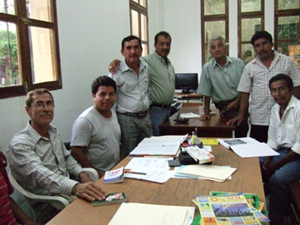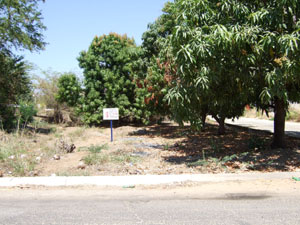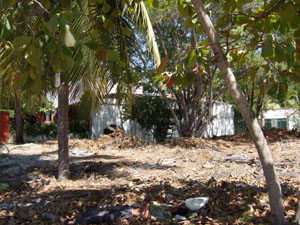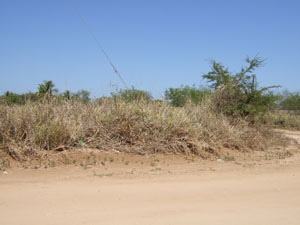
|
By Barbara Schaffer Someone took a friend of mine to see a beautiful piece of property on the Oaxaca coast that was for sale. My friend was interested until he met the neighbors. Actually, the neighbors met him. The neighbors were the "comuneros" and the parcel belonged to their community. This was not a colony of lost hippies or a religious compound, but rather members of an indigenous community who had the final say on who could live on their land. My friend was disconcerted; it all seemed too complicated, and he decided not to buy.
Most of the land in Oaxaca State is communal, but not all communities take such an active hand. If you were to buy land near the Point of Zicatela, for example, you would only need the approval of the land office (Bienes Comunales) in Santa María Colotepec. If you are a foreigner, different rules apply. If, for example, you buy private (non-communal) land, you need the approval of the Foreign Ministry in Mexico City.  Communal Land commission, Sta. María Colotepec 2009 Foreigners
cannot own land within 50 km's of the coastline; so states the Mexican
Constitution. However foreigners are allowed to administer property
and have all the rights and duties of a property owner ( the right to
sell, build, live, pay taxes) as long as the property is held in trust
by a Mexican bank. The trust (fideicomiso) is for 50 years and is renewable.
In case of death it passes to your designated heir.
Laws that
were designed to protect native communities from virtual expropriation
by large plantation owners, as occurred before the Mexican Revolution
(1910-1917), and which were further refined in 1992, were not made to
accommodate the needs of foreigners wishing to live or invest in the
Oaxaca coast.
Otherwise the situation is a classic case of market forces opposing laws designed to protect communities from the market. Enter the lawyers and office holders, and -- for a price -- accommodations, sometimes of doubtful legality, are made. One way around the law, and it's not cheap, is to set up a Mexican corporation. Mexican corporations may be 100% foreign owned, but they must have a lucrative purpose; in the case of real estate, rental income, for example. Technically, you cannot use your corporate status to purchase a house you use as your residence, unless you also rent out part of the property or use it for some other business. Nonetheless, forming a corporation is considered a much safer solution than the other, illegal option, of buying land through an intermediary (presta nombre). In this case, the land is registered in the name of a Mexican national, who rents it back to you. The intermediary can transfer some rights to you by giving you power of attorney. This option is not for the faint-hearted. Fideicomisos Fideicomisos
are issued by banks through notaries. A notary is a lawyer who is licensed
by the state to attest to certain legal documents, such as wills and
property titles. At present, there are 2 notary offices in Puerto, but
any licensed notary in Mexico can help you with a fideicomiso. If you have an HSBC dollar-denominated fideicomiso, you might be surprised this year to discover that the bank no longer accepts cash payment in dollars, although in years past you had to pay in dollars. The reason is "a change in policy," according to Octavio Gómez, the bank's Fiduciary Manager for southern Mexico. The bank will, however, accept payment in dollars by personal check or by international bank transfer. In any case, branch banks will not accept any payment until it is authorized by Mr. Gómez, whose office is in Puebla. Since older
HSBC fideicomisos have a clause indexing the initial $500 U.S. annual
payment to the U.S. Dept. of Labor's Consumer Price Index, it is impossible,
according to Gómez, to make a payment before it is due, as it
is adjusted according to the month and year of issue. Branch banks do
not have this information. So Gómez encourages clients to call
or e-mail him before attempting to make payment. Tel. (222) 229-8179/
8189/ 8181. Octavio.gomez@hsbc.com.mx Sol de la Costa May/June 2009
|


